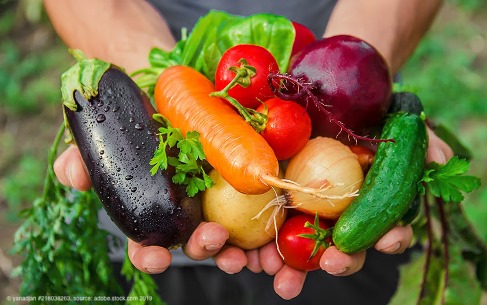With demographic and environmental change eroding agricultural yield, the EU-funded ANTARES project set out to develop smart sensor and big data technologies that will help farmers produce more with fewer inputs and put Europe at the vanguard of the digital revolution in agriculture.
Global population is rising fast – by 2050, it is projected to reach nearly 10 billion, meaning the world will need to produce 70% more food. As agriculture struggles to cope with increasing demand, prices will rise, threatening to push people into poverty. And that is just ‘homegrown pressure’, as agriculture is facing tough challenges including climate change, environmental concerns and land-use pressure.
Innovation is thus not only crucial for increasing the global food supply, but for the sustainability of that very food supply. The ANTARES project is funded by Horizon 2020, the biggest EU research and innovation programme and aims to address these challenges by working at the forefront of a digital revolution in agriculture. The project is developing smart sensor and big data technologies that could help maintain a delicate equilibrium between precision farming and sustainable agriculture.
Under the umbrella of the ANTARES project and the BioSense research institute in Novi Sad, Serbia, the Dutch Stichting Wageningen Research and the Serbian Ministry of Education, Science and Technological Development came together to provide the missing link in agriculture between citizens, farmers, ICT, government and research institutes.
Sensors disguised as pebbles
The EU-funded project’s innovative farm-based sensors are designed to gather as much information as possible. They include sensors mounted on robots that automatically travel around the farm, sensors attached to animals and plants, hand-held sensors and pebble-like sensors that are scattered on a field. ‘We want to know everything there is to know about a plant, from the air, soil and water that sustains it, to the process of photosynthesis that goes on inside the plant,’ says ANTARES project coordinator Vesna Bengin of the University of Novi Sad, Serbia. The cutting-edge sensor technology is capable of tracking factors such as soil moisture levels, monitoring plant health and detecting animal disease such as cow mastitis.
As agriculture is becoming more and more cross-disciplinary, project scientists are also gathering ever more data from remote sensors using satellite imaging, drones and thermal and hyperspectral cameras. Digital agriculture can boost knowledge and yields, reduce inputs and investment and increase resilience to risks like changing weather and price volatility.
Big data – harvesting data crops is helping farmers
Massive amounts of data are being gathered in order to transform traditional farming into precision farming and then are being fed into big data machines, which interpret it using artificial intelligence. Tailored algorithms can then make precise recommendations to farmers. For example, an algorithm could tell a farmer exactly when plants need water, how much fertiliser is needed in any given field, or what crops to plant when and where, all the while reducing the environmental footprint. ‘A farmer with a 5 000-hectare farm can save EUR 1 to 1.5 million just by planting the right crops in the right place using the project’s algorithms,’ Bengin says.
To make their findings accessible to farmers, the project is developing an app called AgroSense. It allows farmers to track the real-time development of their crops from a computer or mobile phone, while also helping them plan their crops to maximise yields and profits. The free app allows even small-scale farmers to access useful information gained from remote sensors such as the EU’s Copernicus satellite system.
Horizon 2020: Open to the World
Horizon 2020 is the largest multinational programme dedicated to research & innovation and it is ‘Open to the World’. This means that researchers, universities, research organisations or companies from across the globe can apply to participate in the activities of the Work Programme carried out mainly through calls for proposals. The Work Programme for 2018-2020 represents a major investment of €30 billion, with more than 600 calls for proposals, including a list of 30 international flagship initiatives in areas of mutual benefit.
More information about the ANTARES project:
More information about Horizon 2020 and EU-international research cooperation:
Horizon
2020
Participant
Portal
Follow updates on Horizon 2020 and EU-international research
cooperation
on Twitter: @EU_H2020

































